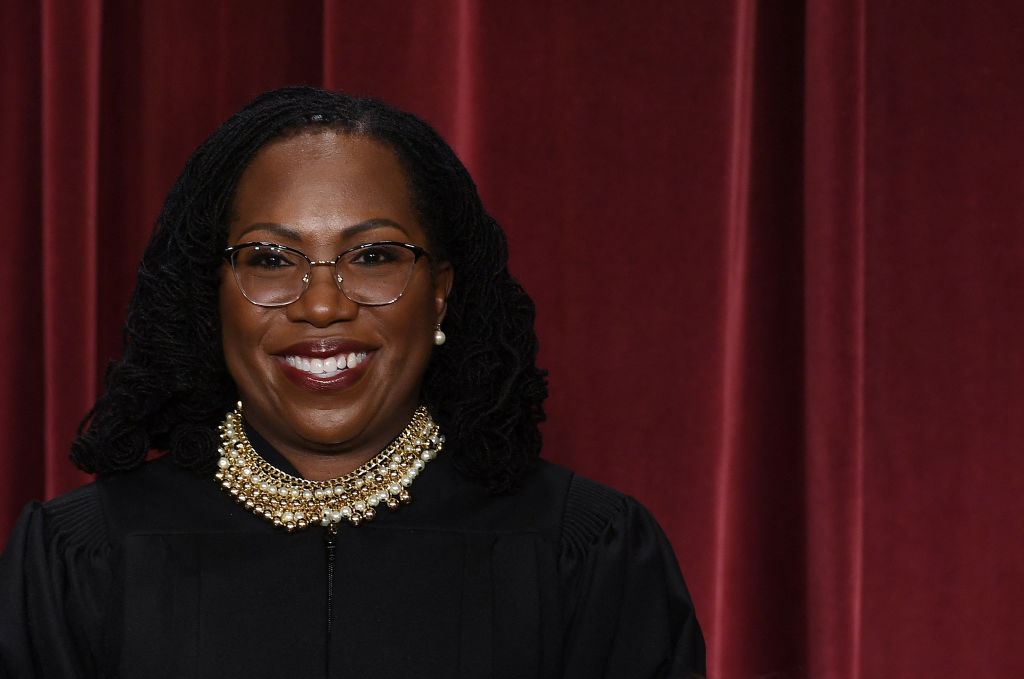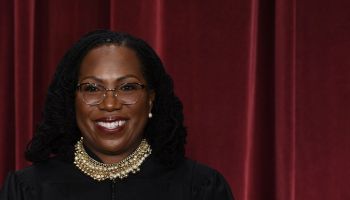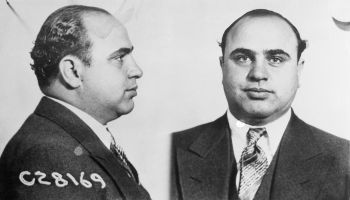
Source: OLIVIER DOULIERY / Getty
The Supreme Court’s conservative majority may be ready to do away with the decades-old diversity strategy known as affirmative action. Still, Justice Ketanji Brown Jackson isn’t letting it go without a fight. During oral arguments in one of two cases considering the use of race in college admissions, Jackson and Justices Sonia Sotomayor and Elena Kagan thoroughly questioned the anti-affirmative action lawyer.
Students for Fair Admissions sued both the University of North Carolina and Harvard. Although Jackson recused herself from the Harvard case, during oral arguments in the UNC challenge, she drilled down on the ridiculous notion that race alone was the only factor being used.
“No one’s automatically getting in because race is being used,” Jackson said. “There’s no real work that it’s doing, separate and apart from the other factors in any different way.”
She pressed hard on the fact that admissions committees could still consider the diversity of SFAA members in several ways already used. Colleges and universities already consider a multitude of factors in the admissions process.
According to information at the oral argument, UNC estimated race plays a factor in 1.2% of all applications in each admissions cycle. Counsel for SFAA opposed that and said it was more likely 700 applications out of 40,000, which is still only 1.75%.
Race is more than just checking a box.
Justice Amy Coney Barrett tried to make a point about race as an experiential consideration, not just checking a box. Trust being Black in America is not just a box we check off on an application. It is merely a contextual identifier for the story told through the admissions file.
It’s an intentionally false framing that ignores ongoing disparities in experience and opportunity. This does not mean Black and other people of color do not excel and thrive, but our experiences and struggle add meaning and context to who we are.
And as Jackson noted, students are not required to disclose their race for admission. This also wouldn’t just stop at admissions.
Scholarships and other programs geared toward supporting Black and other students of color were already retooled nearly 20 years ago because of the affirmative action challenge in Grutter v. Bollinger. Race-specific programs and opportunities were widened to include different interpretations of diversity.
Overcoming discrimination is only a part of one’s experience with race
The SFAA lawyer also tried to claim a story of overcoming a specific act of discrimination could be considered. But not all discrimination is overt. Part of the insidiousness of discrimination is the layered and covert ways it continues to operate within systems.
In another captivating moment, Jackson expressed concern for a rule that expressly prohibits race in a holistic admissions review. She said it could cause a different kind of equal protection challenge for students with aspects of their personal story “bound up” in their race.
What I’m worried about is that that seems to me to have the potential of causing more of an equal protection problem than it’s actually solving. And the reason why I get to that possible conclusion is thinking about two applicants who would like to have their family backgrounds credited in this applications process, and I’m hoping to get your reaction to this hypothetical.
The first applicant says I’m from North Carolina my family has been in this area for generations since before the civil war before the civil war and I would like you to know that I will be the fifth generation to graduate from the University of North Carolina. I now have that opportunity to do that and given my family background it’s important to me that I get to attend this university I wanna honor my family’s legacy by going to this school.
The second applicant says I’m from North Carolina my family’s been in this area for generations since before the civil war but they were slaves and never had a chance to attend this venerable institution. As an African American I now have that opportunity and given my family background it’s important to me to attend this university I want to honor my family legacy by going to this school.
Now, as I understand, you’re no race-conscious admissions will these two applicants would have a dramatically different opportunity to tell their family stories and to have them count. The first applicant would be able to have his family background considered and valued by the institution as part of its consideration of whether or not to admit him. While the second one wouldn’t be able to because his story is in many ways bound up with his race and with the race of his ancestors.
So, I wanna know based on how your rule would likely play out in scenarios like that, why excluding consideration of race in a situation in which the person is not saying that his race is something that has impacted him in a negative way —he just wants to have it honored just like the other person has their personal background family story honored —why is telling him no not an equal protection violation.
SEE ALSO:
Asian American Students Sound Off On Protecting Affirmative Action Ahead Of SCOTUS Oral Arguments
Rutgers Law Professor Stacy Hawkins Explains The Stakes In Latest SCOUTS Affirmative Action Cases
- Sudan: Entertainment, Food, Languages, Places To Visit + More
- Tunisia: Entertainment, Food, Languages, Places To Visit + More
- South Sudan: Entertainment, Food, Languages, Places To Visit + More
- Morocco: Entertainment, Food, Languages, Places To Visit + More
- Egypt: Entertainment, Food, Languages, Places To Visit + More
The post Justice Ketanji Brown Jackson Dismantles Anti-Affirmative Action Position During SCOTUS Oral Argument appeared first on NewsOne.
Justice Ketanji Brown Jackson Dismantles Anti-Affirmative Action Position During SCOTUS Oral Argument was originally published on newsone.com
















